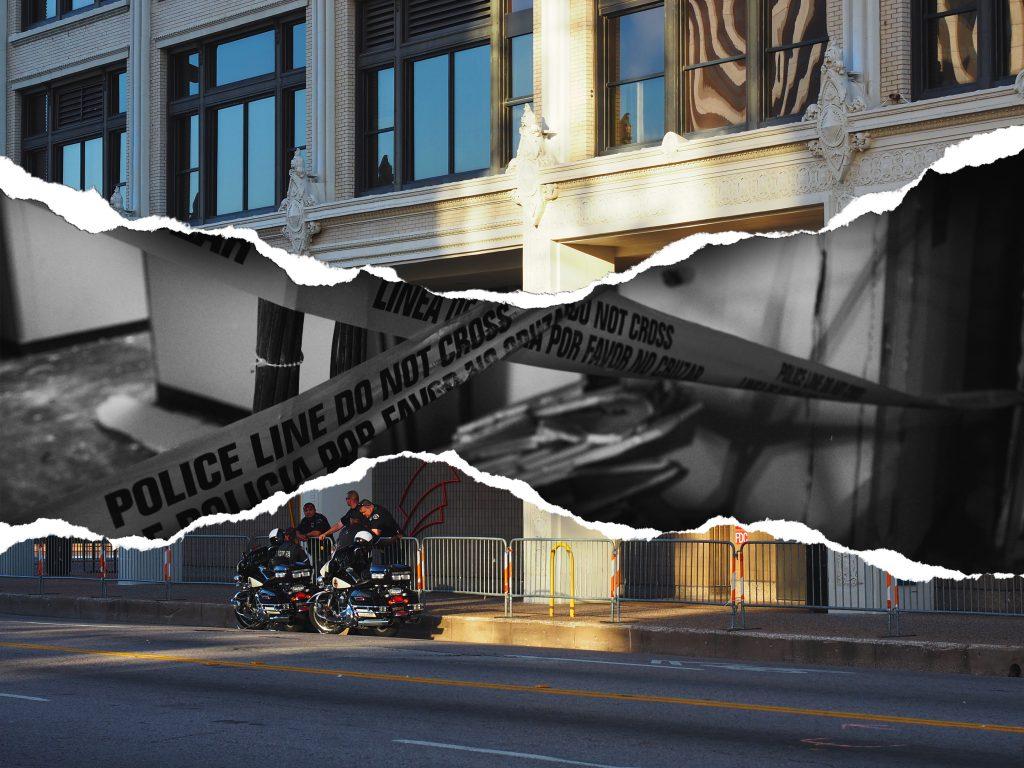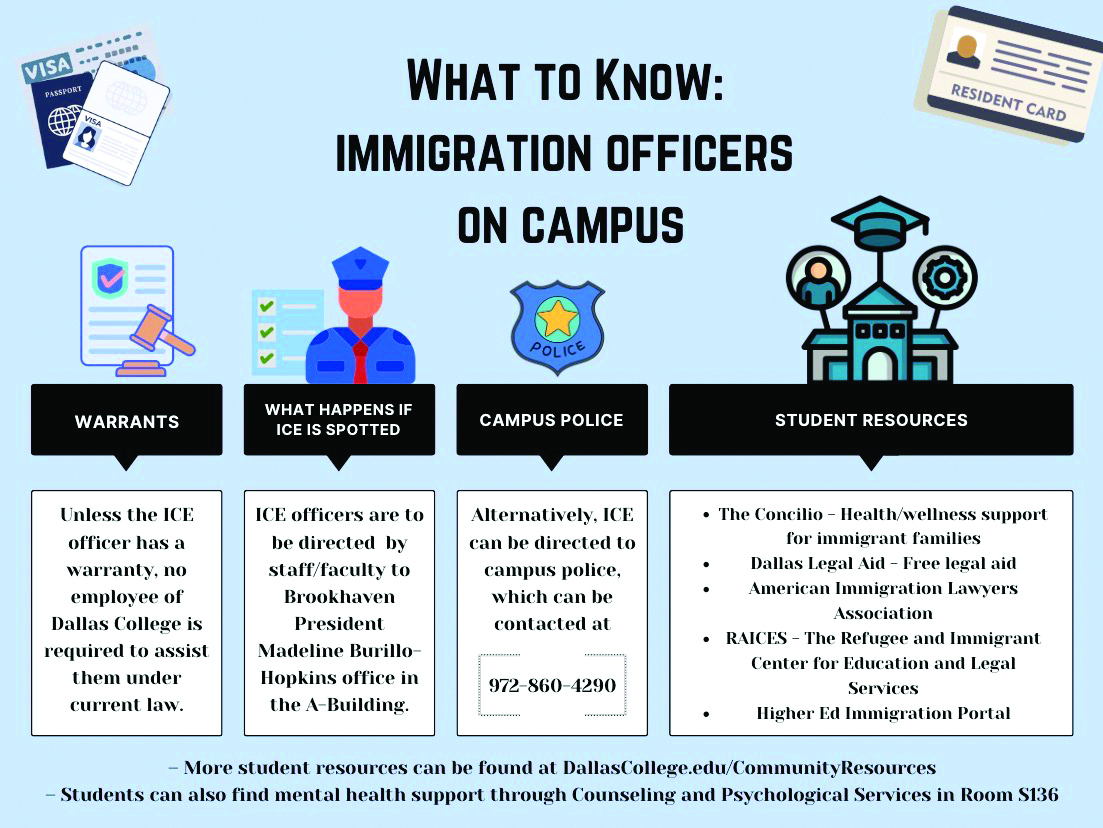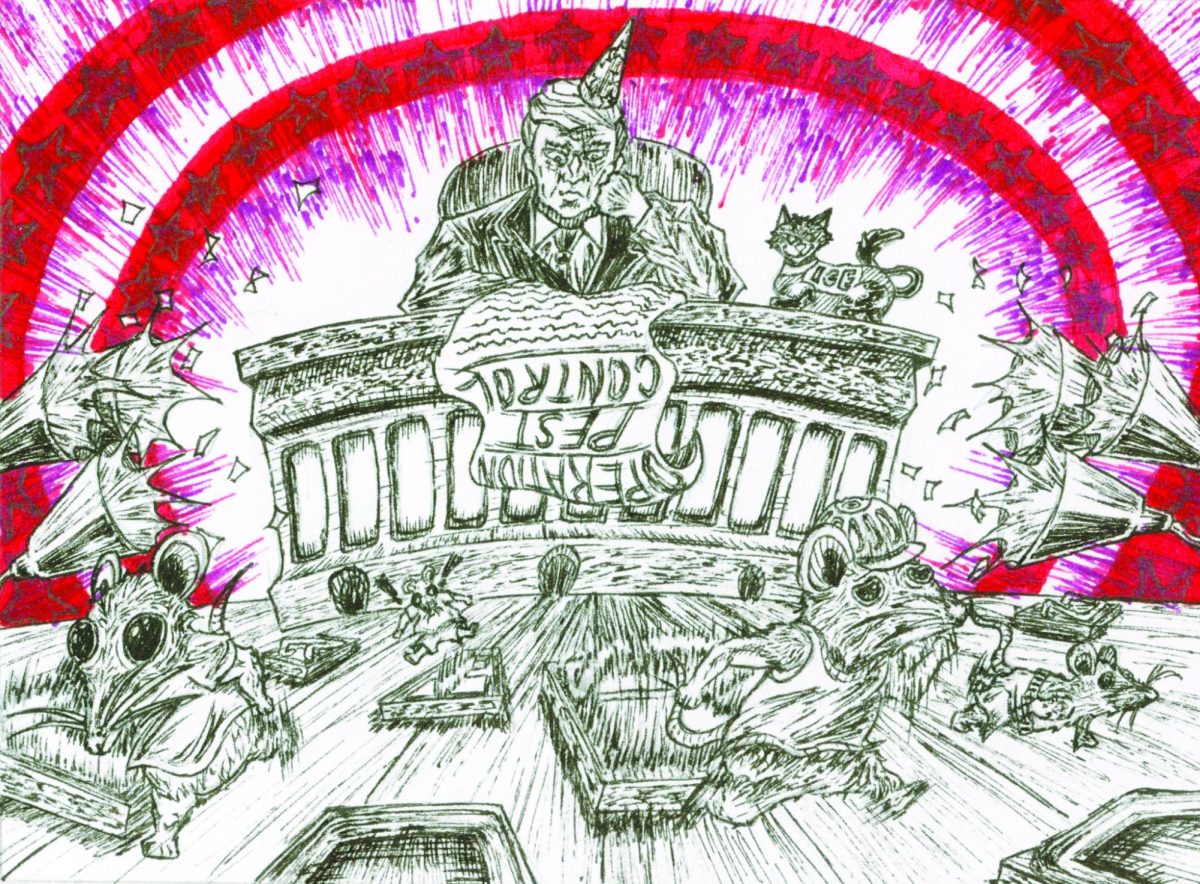Grand jury clears officers of wrongdoing in death of shooter in July 7, 2016, downtown Dallas ambush.
By Jubenal Aguilar
Editor-in-Chief

“Hands up. Don’t shoot,” the protesters, arms in the air, said repeatedly throughout the march. “Hands up. Don’t shoot.” What was supposed to be a peaceful protest against police brutality July 7, 2016, ended in chaos and violence as a heavily armed lone shooter opened fire, targeting peace officers on duty.
At 8:58 p.m., gunfire echoed at the intersection of downtown Dallas’ Main and Lamar streets as the crowd dispersed in all directions.
The incident became the deadliest attack against U.S. law enforcement since Sept. 11, 2001, according to CNN. By the end of the night, four Dallas Police Department officers and one Dallas Area Rapid Transit officer were killed in the streets surrounding El Centro College. Nine other DPD officers and two civilians at the protest were also wounded.
The gunman, later identified as Micah X. Johnson, appeared to have acted on a grudge and took revenge against law enforcement after police shootings of black men in Louisiana and Minnesota in the days prior to the protest.
The night ended with a loud boom inside El Centro after DPD made the unprecedented decision to end the gunman’s life with a brick of C-4 strapped to a remote-controlled robot.
WITHIN THE LAW
According to The Dallas Morning News, a grand jury cleared the officers involved in the gunman’s death of any wrongdoing, ending an 18-month criminal investigation Jan. 31. The ruling indicated officers acted within the parameters of the law.
“All of these officers are going to have to deal with this for the rest of their lives,” Michael Mata, Dallas Police Association president, said after the ruling. “Not only seeing their fellow officers killed in the street, but having to go through the ongoing mental stress that comes with being in the police profession.”
Officers involved in fatal shootings usually go through two investigations, according to the DMN. An internal affairs investigation is opened to determine if any DPD policies were violated. The district attorney’s office also conducts an investigation to determine if there was any criminal wrongdoing.
Authorities in the criminal investigation collected 170 hours of bodycam footage and interviews from more than 240 individuals, including roughly 10 officers who fired their weapons and the two officers who used the explosive device that killed the gunman.
DEPARTMENT SECRETS
In a September 2016 editorial, the DMN said DPD took every effort to block and deny access to information on the ambush. “Dallas Police Department has released virtually no new information that can shed light on what happened July 7,” DMN’s editorial staff wrote.
The DMN and other media, including The Courier, requested information about the shooting through the Freedom of Information Act.
Records were not released citing an ongoing investigation and the department instructed other agencies involved to not release records. Under then-Police Chief David Brown, the department leaned on a state law that gives discretion to keep certain records from being disclosed during an active investigation.
At the time, the DMN requested access to information from the police department including transcripts and recordings of the negotiations with the gunman, camera and surveillance footage from the incident, DART police reports on the shooting and medical examiner’s autopsy and investigative report.
QUESTIONS UNANSWERED
Following the grand jury’s ruling, DMN staff published another editorial Feb. 8, urging DPD to release information on the shooting. In the editorial, DMN staff argued there are still too many unanswered questions.
“The public and the press require access to the interviews, surveillance videos, records and images gathered by investigators in the wake of the killings,” DMN staff wrote. “The city should now move quickly to release what it knows about the shooting, the shooter and the factors that led to then-Police Chief David Brown’s decision to use a robot to kill him.”
According to the DMN, Dallas, its leaders and residents need to know the details of the decision made that night. As of press date, recent additional Freedom of Information Act requests to DPD and Dallas County Community College District have not been answered.







